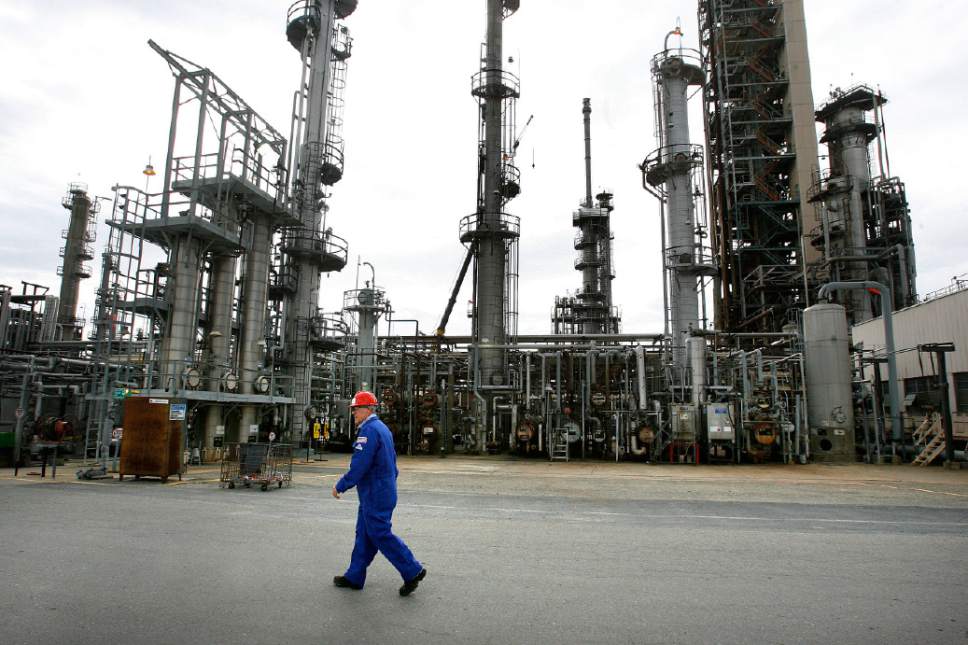This is an archived article that was published on sltrib.com in 2016, and information in the article may be outdated. It is provided only for personal research purposes and may not be reprinted.
The Utah Supreme Court may have agreed to hear Utah environmentalists' second attempt to challenge the expansion of a Salt Lake-area oil refinery, but there was relatively little talk of air pollution during Wednesday's oral arguments.
The challenge, brought by Utah Physicians for a Healthy Environment and Friends of Great Salt Lake, argues that the director of the Utah Division of Air Quality (DAQ) should not have permitted the expansion of HollyFrontier Corp's refinery in Woods Cross.
Much of the Wasatch Front is considered a nonattainment area by the Environmental Protection Agency for having spikes of fine particulate pollution that exceed federal health standards. Joro Walker, an attorney representing Utah Physicians, argued that the refinery's operations contribute to the area's often-poor air quality, and the DAQ should have been more strict about the emissions increases it allowed.
For example, she said, the DAQ chose to use a new methodology of estimating emissions increases that was unproven while reviewing the refinery's planned expansion. That methodology, she said, could have understated the potential for emissions increases. The DAQ also chose not to consider the contributions of unregulated flares at the refinery, she said.
But the bulk of Wednesday's discussion focused on procedural questions. The state justices repeatedly questioned how the case differed from a previous case in which Utah Physicians challenged the state's approval of an expansion at Tesoro's Salt Lake-area refinery. The Utah Supreme Court dismissed that appeal on the grounds that it did not identify specific deficiencies in the final order from the Department of Environmental Quality (DEQ) that upheld the expansion's approval.
State Supreme Court Justice Thomas Lee said Wednesday's hearing felt like deja vu.
"We have heard these exact same oral arguments before," he said.
Consequently, Wednesday's hour-long oral arguments focused primarily on procedural technicalities. Attorneys attempted to demonstrate how the HollyFrontier case was or was not different from the Tesoro case, and argued over whether the Supreme Court were responsible for reviewing the DAQ's approval of the refinery expansion, or the DEQ's final decision to uphold the division-level decision after Utah Physicians initial appeal.
"We talked exclusively, almost, about procedural things," Walker said. "We did not address the legal arguments or the merits of the case at all. We were hoping to, but the court had these significant concerns about whether we set our case up right."
Christian Stephens, an assistant attorney general arguing on behalf of the DEQ, asked the justices to dismiss this new challenge as they had the previous Tesoro case.
"We had an almost identical case last year, and the way [Utah Physicians] approached it was the same, and the court decided that was insufficient," he said. "So we saw that our position was the same here, that they had improperly brought the case to the court, and that the decision should be the same."
During the proceedings, Lee commented to Walker that the similarities between the two appeals did indeed "seem fatal to your case here."
But while the justices seemed to have concerns, Walker said she thought it was "a mistake to try and judge how a court is going to rule based on oral arguments."
The justices took the arguments under consideration and will issue a ruling later.
Twitter: @EmaPen



